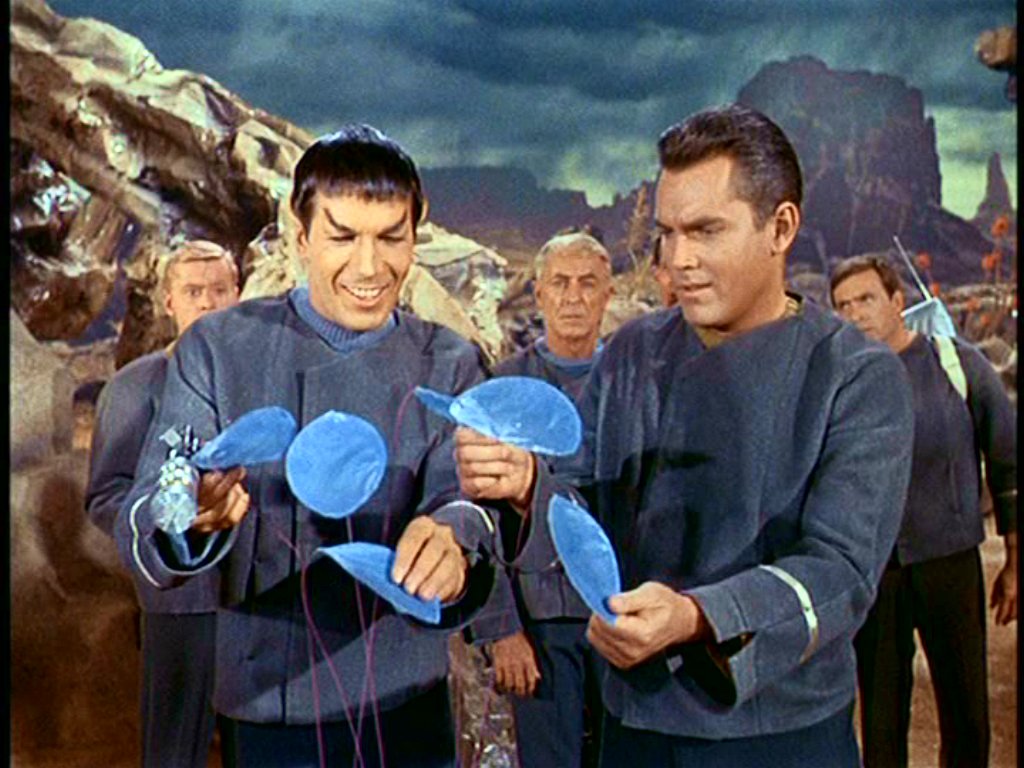Memory Alpha comes to the rescue:
The following character biography appeared in Roddenberry's original,
1964 series pitch Star Trek is... (and was reprinted in The Making of
Star Trek):
"The First Lieutenant. The Captain's right-hand man, the working-level
commander of all the ship's functions – ranging from manning the
bridge to supervising the lowliest scrub detail. His name is Mr.
Spock. And the first view of him can be almost frightening – a face so
heavy-lidded and satanic you might almost expect him to have a forked
tail. Probably half Martian, he has a slightly reddish complexion and
semi-pointed ears. But strangely – Mr. Spock's quiet temperament is in
dramatic contrast to his satanic look. Of all the crew aboard, he is
the nearest to Captain April's equal, physically, emotionally, and as
a commander of men. His primary weakness is an almost catlike
curiosity over anything the slightest 'alien.'"
Note that there is nothing here mentioned about Spock being logical; here he doesn't restrict his emotions
The second revised
final draft script of "The Cage" described Spock by stating, "The only
exception to the familiar types represented by the crew, Mister Spock
is of partly alien extraction, his heavy-lidded eyes and slightly
pointed ears give him an almost satanic look. But in complete contrast
is his unusual gentle manner and tone." The script went on to say that
he spoke "with the almost British accent of one who has learned the
language in textbooks." Later in the script, one of Spock's statements
was directed to be delivered in an "excited" manner.
So, Spock was still not logical; he was in fact less emotionally regulated!
The below quote though tells us why Spock became more emotionally regulated:
According to casting director Joseph D'Agosta, it was his
recommendation that the role be played unemotionally. "On the Spock
character, the only guidelines I had were that he had to be thin, and
a good actor with no emotion," D'Agosta stated. "He was a cold,
calculating, logical person. Humor was not even considered at that
time." (The Star Trek Interview Book, p. 213) According to Leonard
Nimoy, he felt the need to play the character as more emotional when
Jeffrey Hunter was playing the internalized Christopher Pike, as
opposed to William Shatner's portrayal of Captain Kirk. (Mind Meld:
Secrets Behind the Voyage of a Lifetime; et al.)
We can gather from this the why, and that the 'when' was when Shatner was cast as the point when Spock actually became more logical.
We know from that same article that by 17 April 1967 Spock was logical.

